




- BRNN
- BRI News
- BRNN News
- Database
Official Documents Polices and Regulations
Inter-government Documents International Cooperation BRI Countries
Business Guide Economic Data BRI Data
Trade
Investment Projects Latest projects
Cases - Content Pool
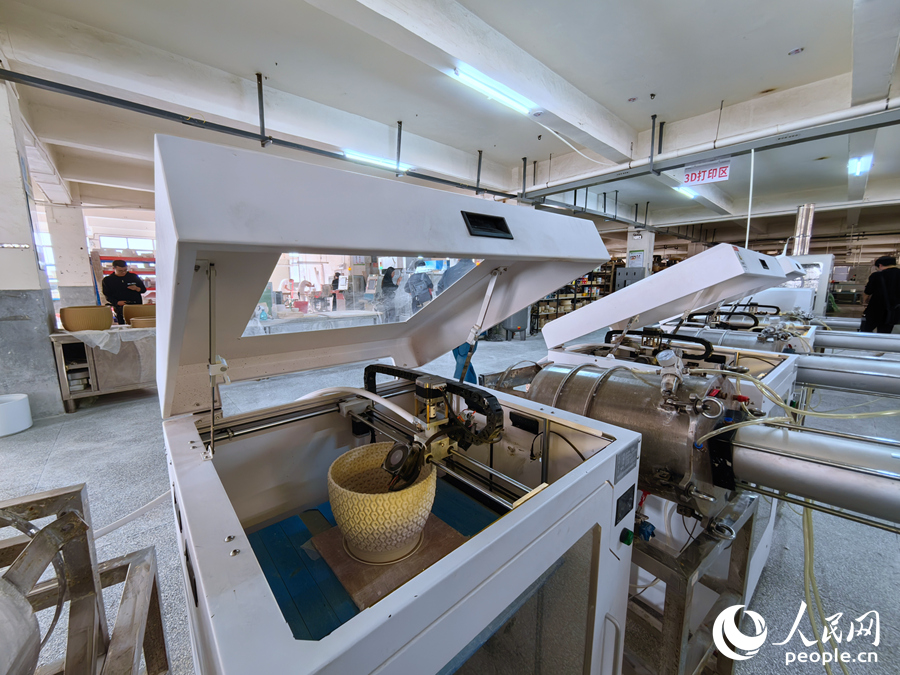
A 3D printer produces a ceramic product at a company in Dehua county, Quanzhou, southeast China's Fujian Province. (People's Daily Online/Su Haisen)
Traditional porcelain craftsmanship is undergoing a high-tech transformation in Dehua county, Quanzhou, southeast China's Fujian Province. At a local porcelain company, robotic arms efficiently manage clay blocks weighing over 50 kilograms, while a 3D printer creates intricate flowerpots in under 20 minutes. This shift exemplifies how the ancient craft is adapting to automation.
Dehua is renowned for its production of white porcelain, a prized commodity along the Maritime Silk Road during the Song Dynasty (960-1279) and Yuan Dynasty (1271-1368). The plain white porcelain produced here is known as "Blanc de Chine," meaning "White from China."
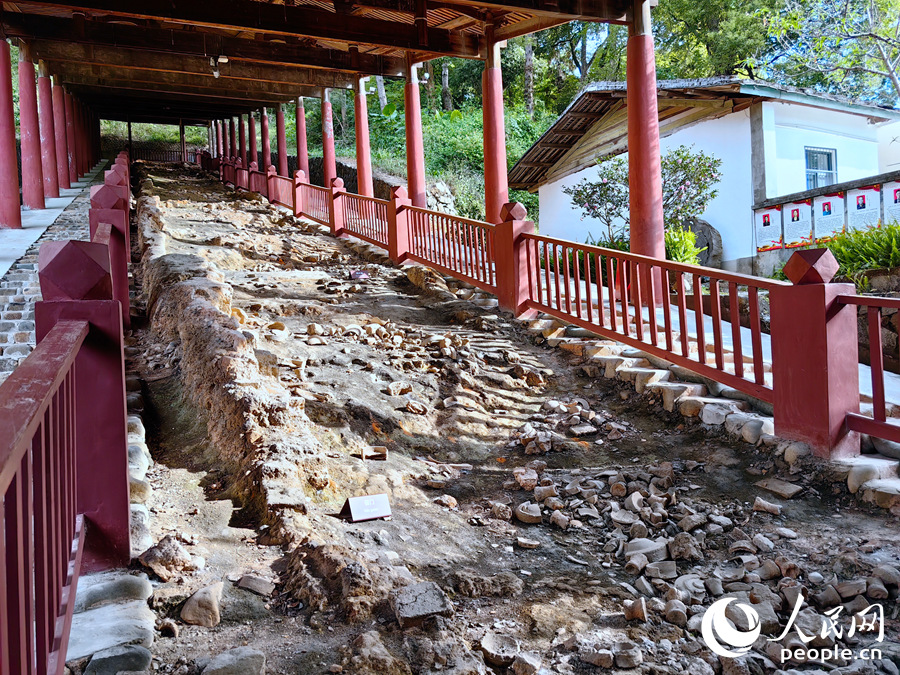
Photo shows an ancient kiln in Dehua county, Quanzhou, southeast China's Fujian Province. (People's Daily Online/Su Haisen)
In recent years, the county has implemented an action plan aimed at leapfrogging the development of the porcelain industry. This plan focuses on expanding international influence, enhancing technological innovation, and boosting market competitiveness to drive high-quality growth within the ceramics industry cluster.
Quanzhou Kaideli Ceramics Co., Ltd. is benefiting from the transformation of the county's porcelain industry. The company's annual export volume of porcelain artworks exceeds $5 million, with European and American orders surging by more than 30 percent this year.
"To further tap into global markets, we have collaborated with several overseas designers. We invest about 20 percent of our output value in design and research and development each year," said Xu Zhenyan, head of Quanzhou Kaideli Ceramics Co., Ltd.
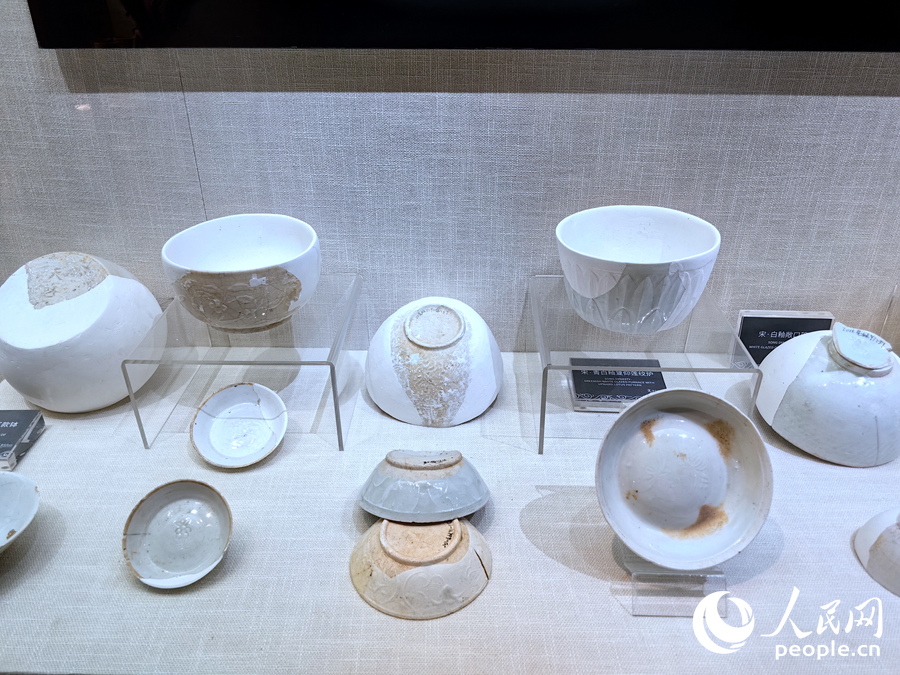
Ancient ceramics are on display at an exhibition hall in Dehua county, Quanzhou, southeast China's Fujian Province. (People's Daily Online/Su Haisen)
Over the past few years, Dehua has organized various activities, including design competitions and the Dehua World Ceramic Design Conference, while providing financial support for technological upgrades in porcelain companies.
This September, the county hosted the 2024 Dehua International Ceramic Culture Week and the fifth Dehua International Ceramic Expo, attracting 216 companies from both domestic and international markets. The total value of deals and intended orders surpassed 163 million yuan ($22.5 million).
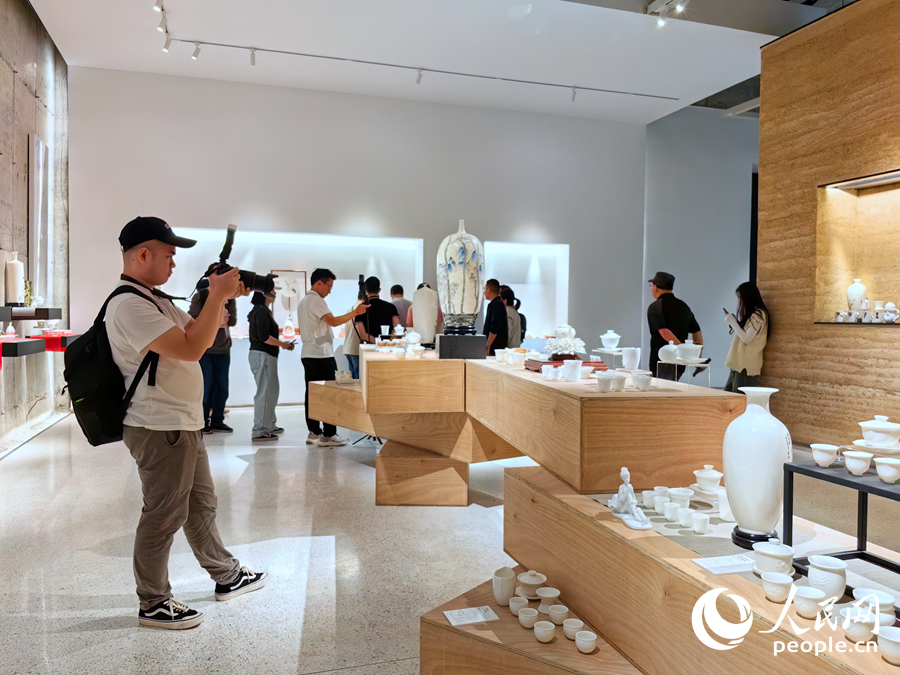
Visitors observe ceramic products at a ceramic art museum in Dehua county, Quanzhou, southeast China's Fujian Province. (People's Daily Online/Su Haisen)
Dehua has also promoted the integration of its porcelain industry with exhibitions, culture, tourism, and trade. Since the beginning of last year, the county has held ceramic art exhibitions at the National Museum of China, the National Art Museum of China, and the Dunhuang Museum. Additionally, it has organized participation for companies in major exhibitions at home and abroad, including the China Import and Export Fair and the China International Import Expo.
Through the blend of tradition and innovation, Dehua's porcelain industry has gained new vitality. With more than 4,000 ceramic enterprises and over 100,000 people engaged in the sector, the county has become the world's largest production and export base for ceramic artworks, as well as the biggest manufacturing hub for ceramic tea sets and flowerpots.
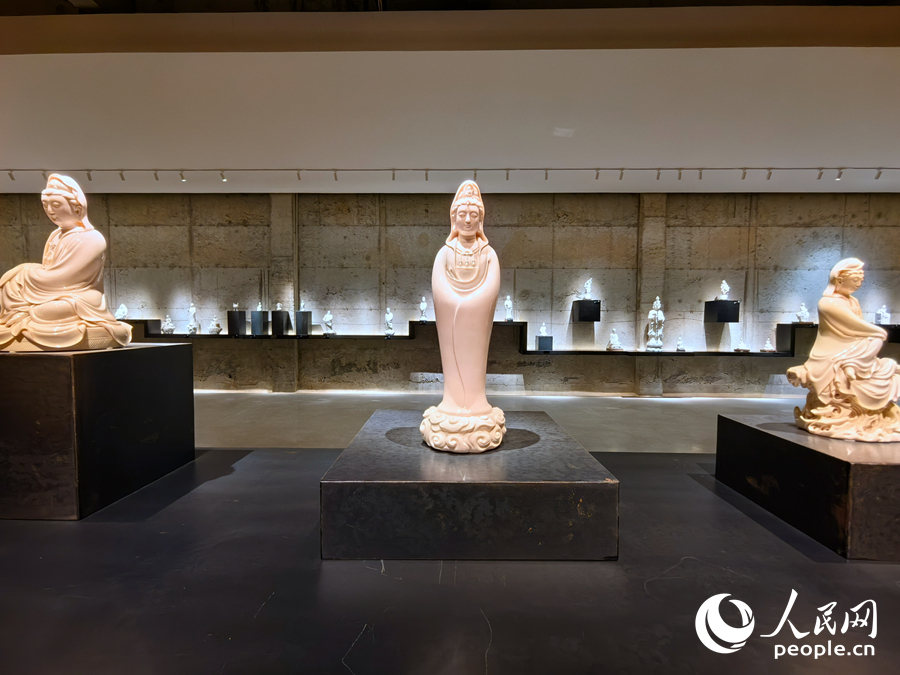
Photo shows ceramic artworks at a ceramic art museum in Dehua county, Quanzhou, southeast China's Fujian Province. (People's Daily Online/Su Haisen)
The county, known as the "World Ceramics Capital," exports its ceramic products to more than 190 countries and regions.
In the first three quarters of this year, the value of the county's porcelain industry reached 47.63 billion yuan, a 13.1 percent increase compared to the previous year.

Tel:86-10-65363107, 86-10-65368220, 86-10-65363106